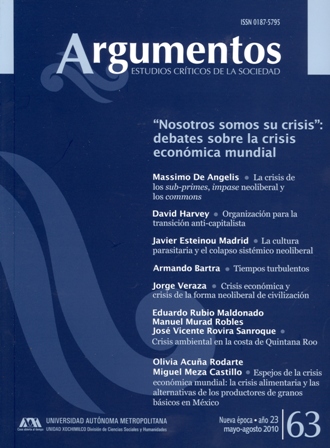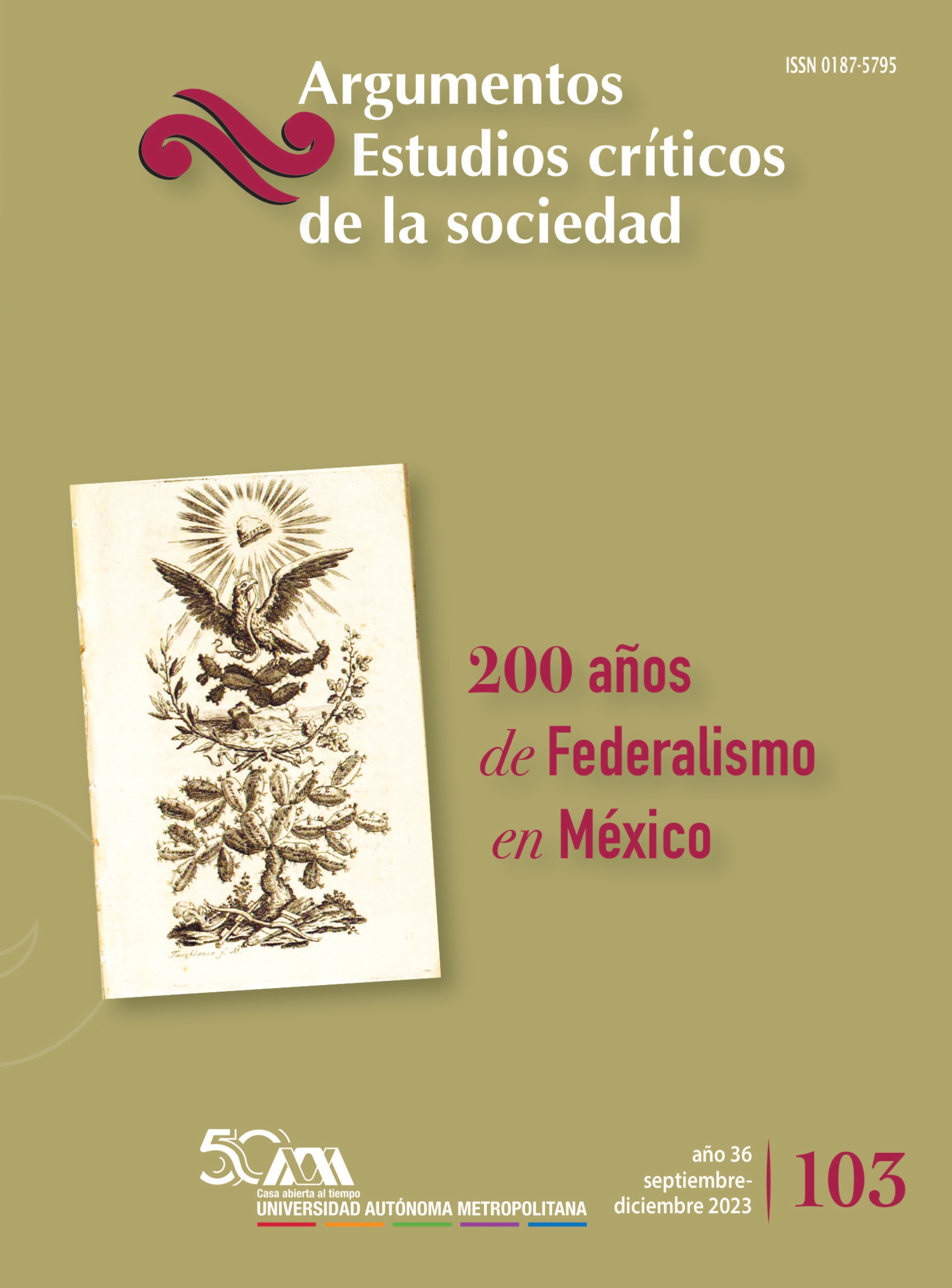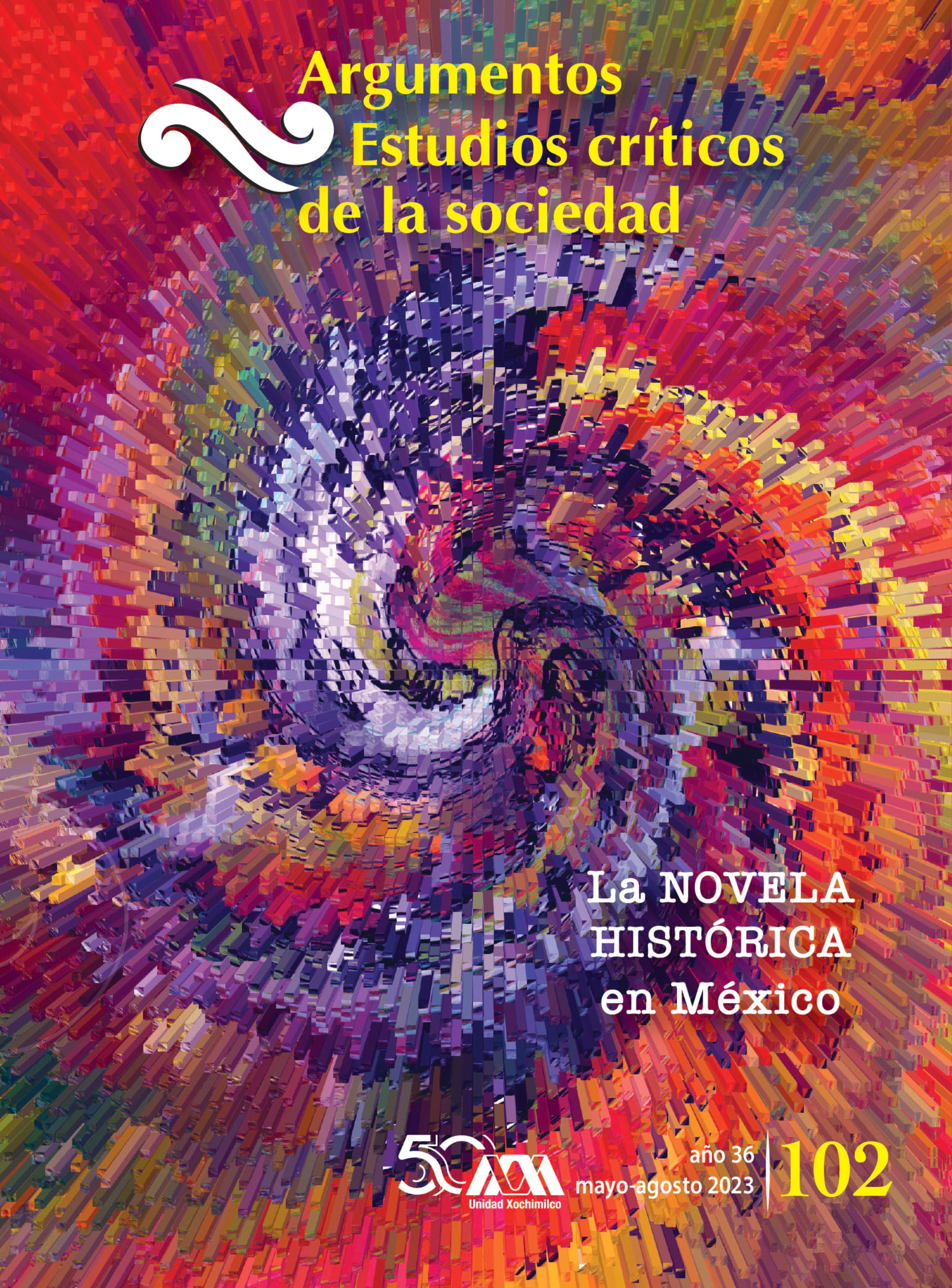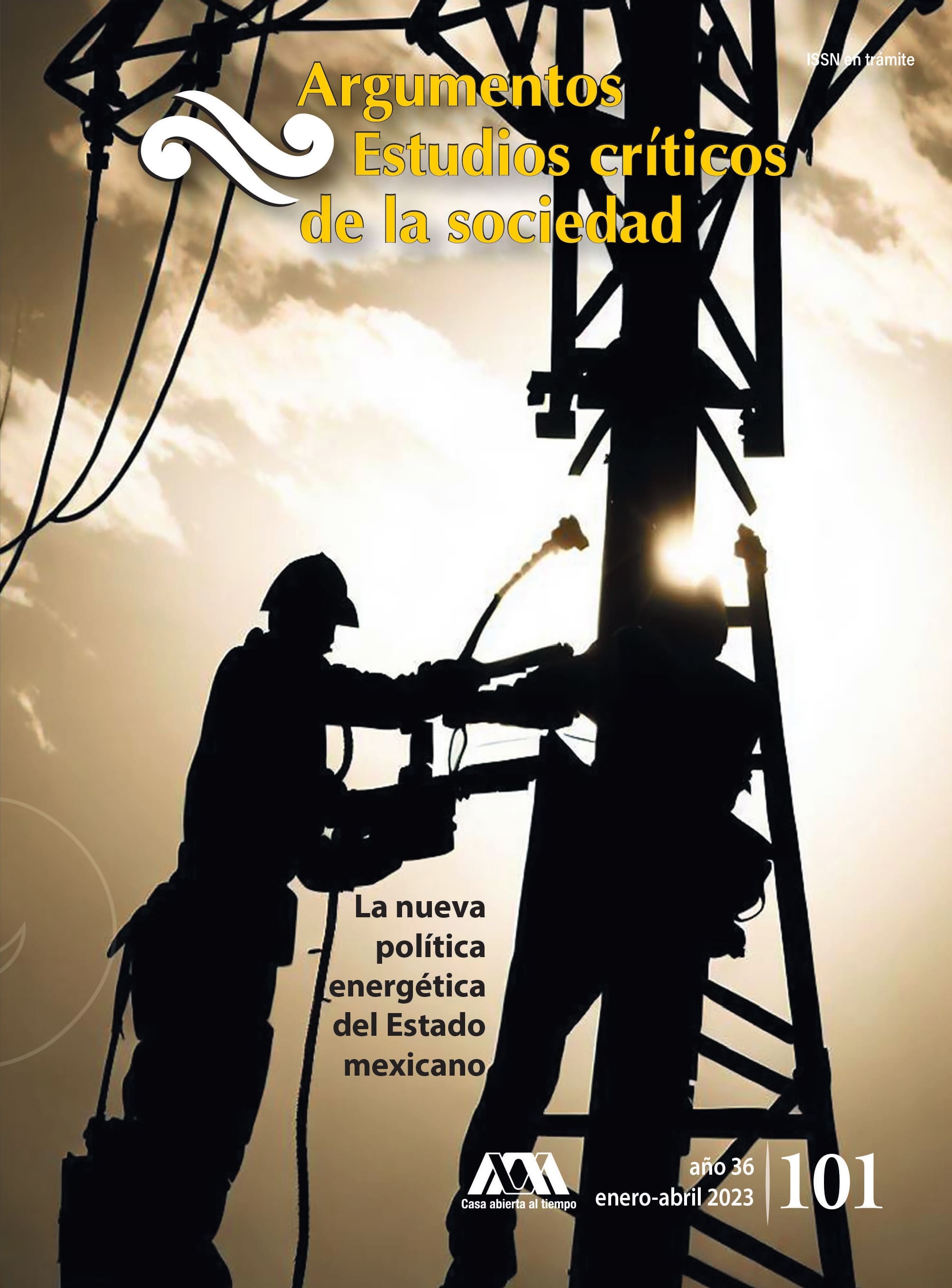Organización para la transición anti-capitalista
Palabras clave:
carácter de clase de la crisis actual, capital excedente, mano de obra excedente, control social de los excedentes, movimiento político anticapitalista, teoría correvolucionariaResumen
La reflexión de David Harvey en este trabajo parte de los siguientes cuestionamientos: ¿puede el capitalismo sobrevivir al trauma actual?, ¿puede la clase capitalista reproducir su poder en nombre de un sinnúmero de dificultades económicas, sociales, políticas, geopolíticas y ambientales?, ¿cómo saldrá la clase capitalista de la crisis actual y qué tan rápida será esta salida?, ¿puede el mundo cambiar material, social, mental y políticamente, de tal manera que enfrente no sólo el terrible estado de las relaciones sociales y naturales en tantas partes del mundo, sino también la perpetuación del interminable crecimiento compuesto?, ¿cuáles son los espacios que quedan en la economía global para nuevos arreglos espaciales que absorben el excedente de capital?, ¿puede la izquierda negociar la dinámica de la crisis?, ¿otro mundo es posible?, ¿otro comunismo es posible?
Citas
Arrighi, G., The Long Twentieth Century, Verso, Londres, 1994.
—— y Silver, B., Chaos and Governance in the Modern World System, University of Minnesota Press, Minneapolis, 1999.
Bellamy Foster, J. y Magdoff, F., The Great Financial Crisis: Causes and Consequences, Monthly Review Press, Nueva York, 2009.
Bookstaber, R., A Demon of Our Own Design: Markets, Hedge Funds, and the Perils of Financial Innovation, Wiley, Nueva York, 2007.
Brenner, R., The Boom and the Bubble: the US in the World Economy, Verso, Londres, 2002.
Cohan, W., The Last Tycoons, Broadway Books, Nueva York, 2007.
Dicken, P., Global Shift: Reshaping the Global Economic Map in the 21st Century, The Guilford Press, Nueva York, 2007.
Dumenil, G. y Levy, D., Capital Resurgent: Roots of the Neoliberal Revolution, Harvard University Press, Cambridge, 2004.
Eichengreen, B., Yung Chul Park y Wyplosz, P. (eds.), China, Asia and the New World Economy, Oxford University Press, Oxford, 2008.
Galbraith, James, K., The Predatory State: How Conservatives Abandoned the Free Market and Why Liberals Should Too, Free Press, Nueva York, 2009.
Galbraith, John K., Money: Whence it Came, Where it Went, Penguin, Nueva York, 1975.
——, A Short History of Financial Euphoria, Whittle Direct Books, Knoxville, 1994.
Gautney, H., Protest and Organization in the Alterative Globalization Era: NGOs, Social Movements, and Political Parties, New York, Palgrave Macmillan, 2009.
Greider, W., Secrets of the Temple; How the Federal Reserve Runs the Country, Simon and Schuster, Nueva York, 1989.
Harvey, D., A Brief History of Neoliberalism, Oxford University Press, Oxford, 2005.
——, The Limits to Capital, Verso, Londres, 2007.
——, The Enigma of Capital: and the Crises of Captalism, Profile Books, Londres, 2010.
Helleiner, E., States and the Reemergence of Global Finance: From Bretton Woods to the 1990s, Cornell University Press, Ithaca, 1994.
Maddison, A., Phases of Capitalist Development, Oxford University Press, Oxford, 1982.
——, Contours of the World Economy, 1-2030 AD: Essays in Macro-Economic History, Oxford University Press, Oxford, 2007.
Mertes, T. (ed.), A Movement of Movements, Verso, Londres, 2004.
Milanovic, B., Worlds Apart: Measuring International and Global Inequality, Princeton University Press, Princeton, 2005.
Panitch, L. y Konings, M. (eds.), American Empire and the Political Economy of Global Finance, Palgrave Macmillan, Nueva York, 2008.
Partnoy, F., Infectious Greed: How Deceit and Risk Corrupted Financial Markets, Henry Holt, Nueva York, 2003.
Peet, R. y Watts, M. (eds.), Liberation Ecologies, Routledge, Nueva York, 2004.
Phillips, K., American Theocracy: The Peril and Politics of Radical Religion, Oil and Borrowed Money in the 21st Century, Viking, Nueva York, 2006.
——, Bad Money: Reckless Finance, Failed Politics, and the Global Crisis of American Capitalism, Penguin, Nueva York, 2009.
Pollin, R., Contours of Descent, Verso, Londres, 2003.
Porter, P. y Sheppard, E., A World of Difference: Encountering and Contesting Development, Guilford, Londres, 2009.
Santos, Boaventura de Sousa, The Rise of Global Left: The World Social Forum and Beyond, Zed Books, Londres, 2006.
—— (ed.), Another Production is Possible: Beyond the Capitalist Canon, Verso, Londres, 2007.
Silver, B., Forces of Labor: Workers’ Movements and Globalization since 1870, Cambridge University Press, Cambridge, 1993.
Smith, N., Uneven Development: Nature, Capital, and the Production of Space, University of Georgia Press, Atenas, 2008.
The Worldwatch Institute, State of the World 2009, Norton, Nueva York.
Turner, G., The Credit Crunch: Housing Bubbles, Globalisation and the Worldwide Economic Crisis, Pluto, Londres, 2008.
United Nations Development Program 1989-2009, Human Development Report (annual issues), Palgrave Macmillan, Nueva York.
Walker, R. y Storper, M., The Capitalist Imperative: Territory, Technology and Industrial Growth, Wiley-Blackwell, Oxford, 1991
Wang Hui, China’s New Order: Society, Politics and Economy in Transition, Harvard University Press, Cambridge, 2003.
Wolf, M., Fixing Global Finance, Johns Hopkins University Press, Baltimore, 2008.
Wolf, R., Capitalism Hits the Fan: The Global Economic Meltdown and What to Do About It, Olive Branch Press, Nueva York, 2009.
PÁGINAS ELECTRÓNICAS
Piketty and Saez on shifting income and wealth inequality in the United States [http://elsa.berkeley.edu/~saez/].
Realtytrac compiles local and national US data on the foreclosures [http://www.realtytrac.com].
The Mortgage Bankers Association keeps tabs on US delinquencies and mortgage applications [www.mbaa.org/].
For Harvey on Marx’s Capital and the urban origins of the crisis [http://DavidHarvey.org].
International Monetary Fund for global reports and data [http://www.imf.org].
Bank of International Settlements for working papers and reports particularly on the differential geographical impact of the crisis [http://www.bis.org].
World Bank for comparable global data and reports [http://worldbank.org/].
Asian Development Bank is a mine of information and reports on what is happening in the region [http://www.adb.org/Economics/].
Brad DeLong’s website which is far from being as fair and balanced as he claims, offers a lively debate from a conventional economist’s perspective on the crisis [http://delong.typepad.com/main/].
New York Times article archive [http://www.nytimes.com/ref/membercenter/nytarchive.html].
Le Monde Diplomatique offers global coverage of what the alternative globalization movement is up to along with critical discussions of a wide range of social, political, environmental and economic issues [http://www.monde.diplomatique.fr/].
The Socialist Register over the years has thematically explored many of the topics taken up here. The archive can be accessed through [http://socialistregister.com/index.php/srv/issue/archive].
The Monthly Review keeps a lively flow of critical commentary and contemporary information going [http://www.monthlyreview.org/mrzine/].








